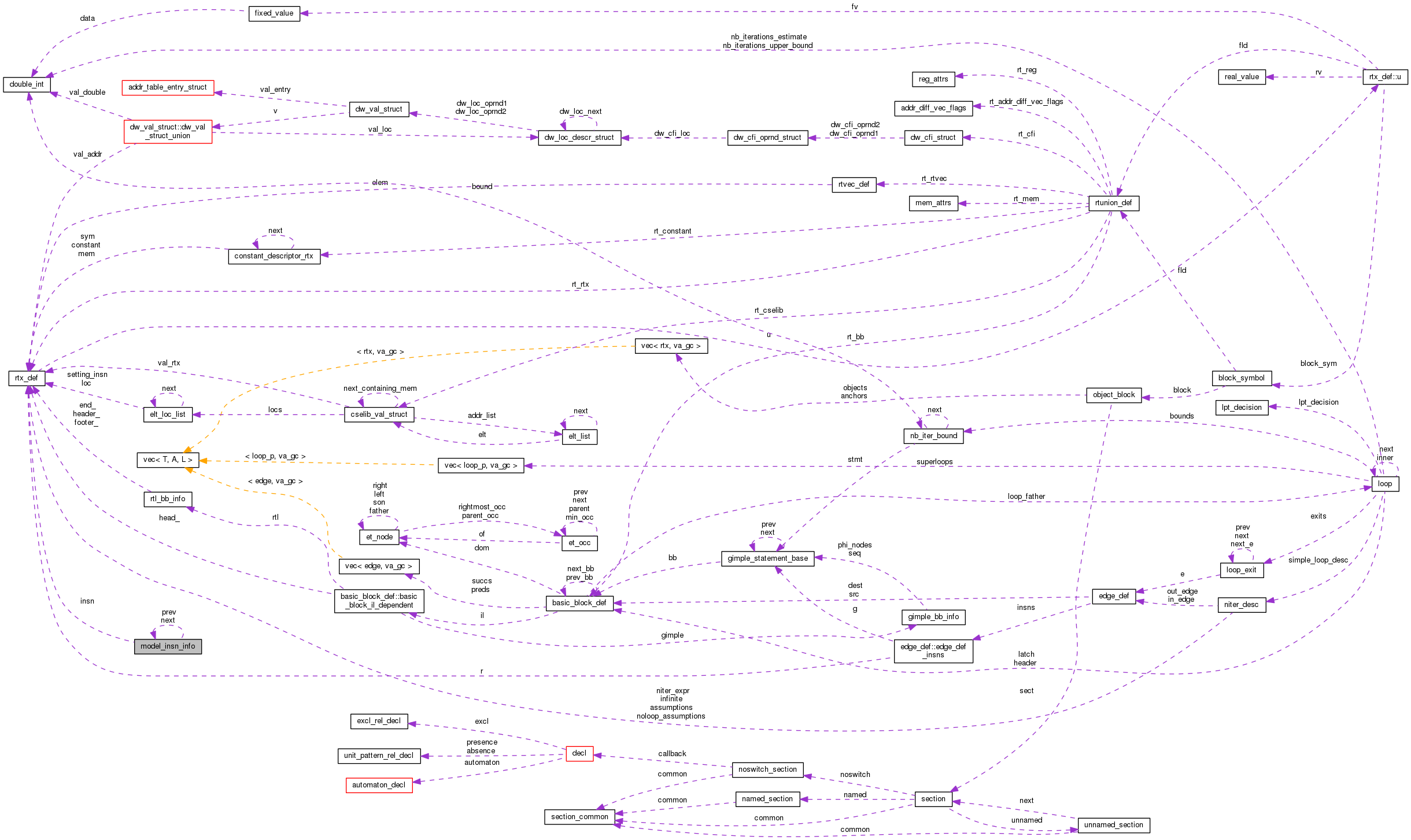model_insn_info Struct Reference
Collaboration diagram for model_insn_info:

Data Fields | |
| rtx | insn |
| struct model_insn_info * | prev |
| struct model_insn_info * | next |
| int | old_queue |
| unsigned int | model_priority |
| unsigned int | depth |
| unsigned int | alap |
| int | unscheduled_preds |
Detailed Description
Per-instruction information that is used while building the model schedule. Here, "schedule" refers to the model schedule rather than the main schedule.
Field Documentation
| unsigned int model_insn_info::alap |
The length of the longest path of dependencies of any kind
that leads from this instruction.
Referenced by check_clobbered_conditions(), and model_analyze_insns().
| unsigned int model_insn_info::depth |
The length of the longest path of satisfied true dependencies
that leads to this instruction.
Referenced by model_analyze_insns(), and model_remove_from_worklist().
| rtx model_insn_info::insn |
The instruction itself.
Referenced by check_clobbered_conditions(), model_analyze_insns(), model_init_pressure_group(), model_promote_insn(), model_remove_from_worklist(), ready_remove_insn(), and sched_setup_bb_reg_pressure_info().
| unsigned int model_insn_info::model_priority |
The relative importance of an unscheduled instruction. Higher
values indicate greater importance.
Referenced by model_analyze_insns(), model_init_pressure_group(), and model_promote_insn().
| struct model_insn_info* model_insn_info::next |
Referenced by model_analyze_insns(), model_promote_insn(), and setup_insn_max_reg_pressure().
| int model_insn_info::old_queue |
While constructing the schedule, QUEUE_INDEX describes whether an
instruction has already been added to the schedule (QUEUE_SCHEDULED),
is in model_worklist (QUEUE_READY), or neither (QUEUE_NOWHERE).
old_queue records the value that QUEUE_INDEX had before scheduling
started, so that we can restore it once the schedule is complete.
Referenced by check_clobbered_conditions().
| struct model_insn_info* model_insn_info::prev |
If this instruction is in model_worklist, these fields link to the
previous (higher-priority) and next (lower-priority) instructions
in the list.
Referenced by setup_insn_max_reg_pressure().
| int model_insn_info::unscheduled_preds |
The number of predecessor nodes that must still be scheduled.
Referenced by check_clobbered_conditions(), and model_init_pressure_group().
The documentation for this struct was generated from the following file:
